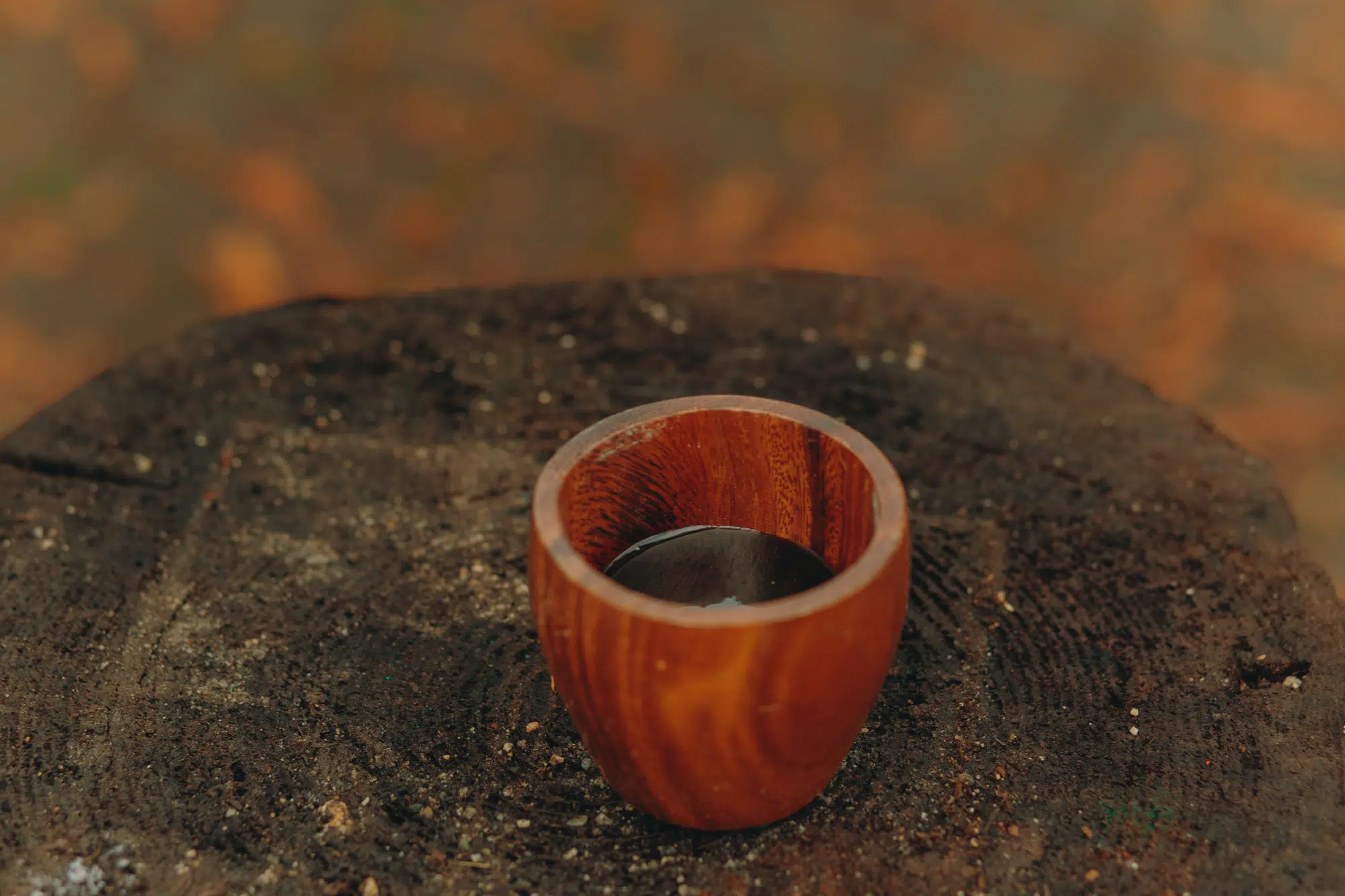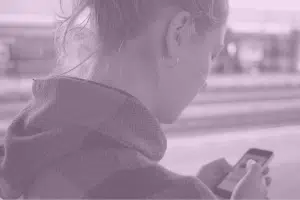Scientists still have scant data on the health benefits and risks of ayahuasca, a psychedelic brew used for centuries by Indigenous peoples of South America. Despite growing mainstream interest in the healing power of entheogens, ayahuasca remains on the relative periphery of academic research compared to substances like psilocybin.
The poor understanding by scholars is due in part to the unique set and setting of a traditional ayahuasca experience, typically referred to as a ceremony and facilitated by a shaman. It’s difficult, perhaps impossible, to recreate that mystical environment in a lab.
“Any structured studies with ayahuasca are rare,” said ethnopharmacologist Dennis McKenna, a researcher of ayahuasca ceremonies since the early 1980s and the younger brother of legendary psychedelics advocate Terence McKenna. “It doesn’t fit easily into the usual double-blind, placebo-controlled models.”
A new observational study set for this summer aims to add to the thin scientific knowledge base by gathering information from actual participants in an ayahuasca ceremony. It will survey a small group of immigrants and refugees—primarily women—who hope the experience can help them process past trauma.
The organization conducting the study, Colorado Springs-based nonprofit Unlimited Sciences, is hungry for as much data as it can collect about how psychedelics are used in nonclinical settings. The group says on its website that it’s building “the largest collection of real-world data on psychedelic use so that we can more quickly understand how to use these drugs more safely and effectively.”
Two years ago, Unlimited Sciences partnered with researchers at Johns Hopkins University, which opened the country’s first-ever psychedelics research center in 2019, to undertake a broad survey of psilocybin use. The two-year study cast a wide net, asking hundreds of people about their trips regardless of where or why participants chose to take mushrooms.
How to Grow Shrooms Bundle
Take Both of Our Courses and Save $90!
“Most people taking psilocybin are not taking psilocybin in a clinical setting in the lab,” Matthew X. Lowe, director of research at Unlimited Sciences, told DoubleBlind. “Now that we’ve had a very successful first study,” he said, “we want to expand that to as many different substances as we can.”
Read: Trauma is the New Buzzword, but Does Everyone Really Have It?
Unlimited Sciences is betting that data from real-world use will help better identify both the benefits and risks of psychedelics as more people seek out entheogenic experiences for healing and personal growth.
“Ayahuasca retreats are growing year on year, all over the States and outside the States,” Lowe said. “Whether we do the research or not, this is happening. People are having these experiences.”
Unlimited Sciences was inspired by Realm of Caring, a nonprofit that has assembled a registry of thousands of people’s experiences with medical cannabis. Heather Jackson, who co-founded Realm of Caring in 2012 after cannabis oil alleviated her son’s seizure disorder, went on to launch Unlimited Sciences after her own life-changing experience with psilocybin.
Compared to Realm of Caring’s cannabis registry or the fairly wide-open Unlimited Sciences study involving psilocybin use, the new observational study on ayahuasca is limited to a single ceremony. Lowe said Unlimited Sciences was approached by someone organizing the ceremony and given the chance to observe.
In the days leading up to the event, participants will be assessed on a battery of baseline psychological and health measures. On the day of the ceremony itself, another survey will assess the “state of surrender,” or an individual’s openness to the psychedelic experience, which includes elements such as a participant’s trust in the guide and other members of the group. Subsequent follow-up surveys examine the experience itself, its immediate impacts, and how those effects change over time.
“We thought this would be a fantastic opportunity to be able to educate and bring awareness to both the positive and negative experiences of these group-based ceremonies,” Lowe said. “If we’re aiming for Unlimited Sciences to develop the same call-center model that we did with Realm of Caring, that means we need the data and the data-driven research to be able to support any information that we give.”
The full study, which Unlimited Sciences says will be approved by an outside ethics board, is expected to unfold over a period of about four months. Researchers will then analyze the data and publish their findings.
Unlimited Sciences is currently raising money to cover the costs of the observational study. The organization, however, is neither facilitating the ceremony nor administering ayahuasca to participants.
Details of the ceremony itself are still mostly under wraps, a measure Lowe said is due to the need to protect the privacy of potentially vulnerable immigrants and refugees. In an interview, he declined to answer certain basic questions, including what country the in-person ceremony would be held in. While ayahuasca originated in the Amazon Basin and most ceremonies still take place in South American countries, variants of ceremonies—some more adherent to tradition than others—have spread widely.
“Many of these refugees and immigrants are targets of both their current countries of residence and their home governments, and to reveal anything about their identities could put them at severe risk,” Lowe said. “For the organizer, and the individuals themselves, we are trying to best protect their privacy and anonymity in any way that we can.”
The lack of available information on the ceremony at the center of the study, however, has already stirred conflicting feelings in some members of the psychedelic community.
Bia Labate is the co-founder and executive director of the Northern California-based Chacruna Institute for Psychedelic Plant Medicines. A Brazilian anthropologist who now lives in San Francisco, Labate both supports academic research into ayahuasca and, at the same time, is troubled by some of the assumptions made by eager researchers.
Read: The Ayahuasca Experience
She called the Unlimited Sciences study “innovative, unique, and timely,” but also criticized its leaders for not providing more information about the specific context, especially in light of organizers’ framing of the study as an early step in building scientific knowledge about ayahuasca.
“This shows that biomedical scientists, even when in their best efforts to take into account the ‘setting,’ do still appear to downplay its role and consider all of the settings interchangeable,” Labate said in an email. “Is the context of a Brazilian ayahuasca religion, a Yawanawa village in the Peruvian Amazon, a therapeutic circle in California, or a retreat for foreigners with Taitas in Colombia all the same? From the point of view of those that drink ayahuasca, the setting matters tremendously.”
“As much as observational studies are important to advance the field of psychedelic science as a whole, and refugees are an incredibly vulnerable and traumatized population who most certainly deserve healing, the same question remains: What are Indigenous people gaining with this kind of research?” she continued. “While there is a global boom in the use of ayahuasca, Indigenous people continue to be murdered across the Americas… It would be nice to see a boom in community-based research, that is aimed at researching things that are useful for local communities, and in partnership with them.”
How to Grow Shrooms Bundle
Take Both of Our Courses and Save $90!
Labate raised a number of other ethical questions, too. “It would be important to know what Unlimited Sciences, UCSF, and Robin (Carhart-Harris) are planning to do with the research,” she said. “First: Who owns the data? Second: Is publishing academic papers the only goal? Or are they planning to develop a medicine out of this?”
Lowe, of Unlimited Sciences, agreed that focusing on Indigenous ayahuasca ceremonies in the Amazon Basin would provide “enormous amounts of data,” but he argued that such data would fail to describe the complete universe of how people are using ayahuasca today.
“We also need to study ayahuasca in different contexts and settings and see how it affects different communities,” Lowe said. “In an ideal world, everyone would go down to the Amazon basin and they would have these traditional practices, but, of course, not everyone has the access to do that, and they’re going to be doing these substances regardless of that.”

DoubleBlind is a trusted resource for news, evidence-based education, and reporting on psychedelics. We work with leading medical professionals, scientific researchers, journalists, mycologists, indigenous stewards, and cultural pioneers. Read about our editorial policy and fact-checking process here.

DoubleBlind Magazine does not encourage or condone any illegal activities, including but not limited to the use of illegal substances. We do not provide mental health, clinical, or medical services. We are not a substitute for medical, psychological, or psychiatric diagnosis, treatment, or advice. If you are in a crisis or if you or any other person may be in danger or experiencing a mental health emergency, immediately call 911 or your local emergency resources. If you are considering suicide, please call 988 to connect with the National Suicide Prevention Lifeline.



